Upper Body Duck Dive Training & Exercises
Surfing. Its one of those skills that to really improve upon, you just gotta spend time in the water. Practice, practice, practice.
BUT, you can do a lot out of the water with some well designed surf training to make sure your body is prepared to surf, and has the ability to perform the specific movements and strength demands that surfing requires.
So with respect to preparation, and ability, I want to give you a few bits of surf training that are highly effective for preparing your upper body for duck dives.
I recently got a few questions from some clients for some input into some specific exercises to really tighten up those shoulders and upper body to develop a bit more duck dive strength…. so here we go.
3 of the Best Movements For Duck Dive Training
Stable Strong Upper Body & Surf Strong Core
To truly develop an upper body that can smash down some heavy duck dives, you’ve got to develop shoulders and an upper body that are dynamically stable, rapidly strong, and a core that can allow those powerful upper body movements to occur without pain and injury. This requires several methods of training.
Highly Stable Shoulder Training
1. You’ve got to develop a stable shoulder girdle. This could be a post all by itself, but the serratus pushes in the video are doing a lot to help strengthen specific muscles (serratus anterior), that will help to stabilize your scapula, providing a more stable shoulder. You also need to take a look at thoracic mobility (read this link, really important stuff)

Thoracic Spine Mobility… and Thoracic Spine Rotation.
If you’ve got a more stable shoulder, it will be able to react more quickly and efficiently to the dynamic and unstable movements of the surfboard when your pushing it underwater or while its getting torn around by wave turbulence.
A more stable shoulder will allow more strength to be produced by the upper body, and transmit down through the board, allowing your to press that board further underwater, getting underneath that foamball.
Unstable Surface Training
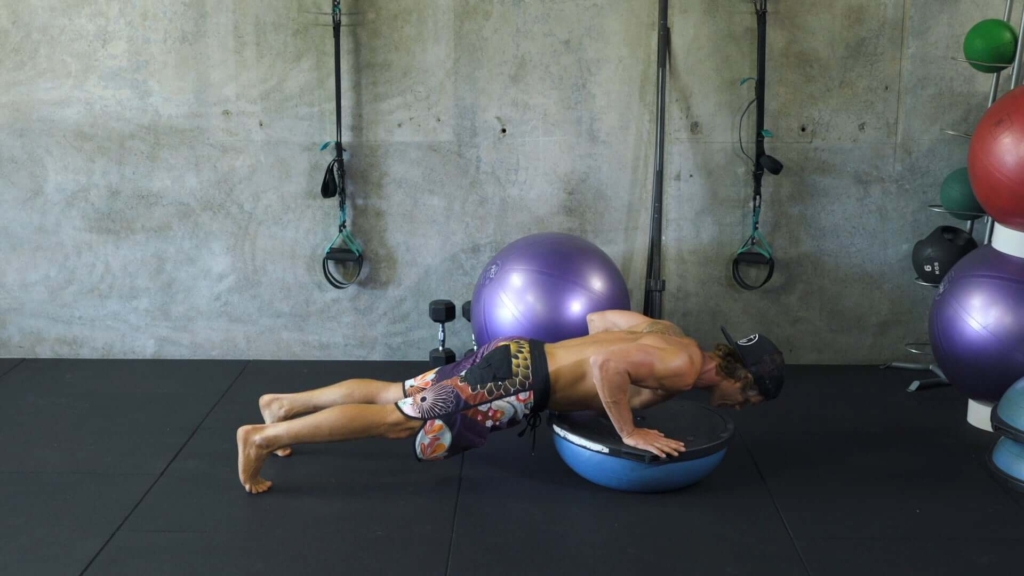
2. You need to implement some movement that incorporates unstable surfaces, as well as an upperbody pressing movement. The stability ball pushup as shown in the video is great for this.
Control the movement, and do NOT sacrifice core control. This is a great movement that can effectively train the shoulder girdle to become more dynamically stable, which is a great step towards building injury proof shoulders.
Some pushup variations can be great for this as well. Give this a check…. Surfer Pushup Progressions
Upper Body Strength Training
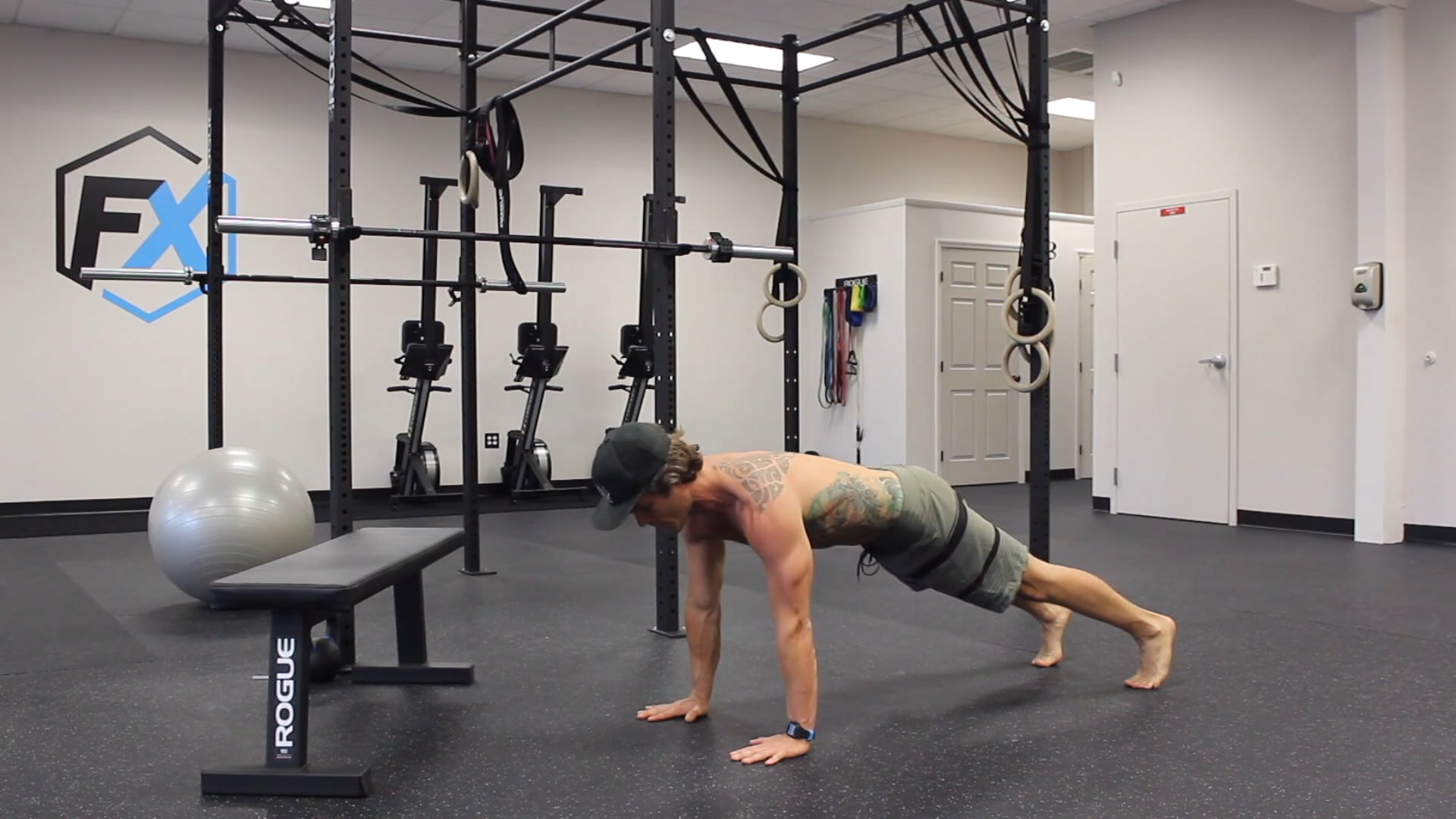
3. Some good ole’ open chain (as opposed to closed chain movements) pressing movements to build strength. But since we’re surfers, and are constantly in extremely athletic sport environments, we need to spice up this movement a bit.
A single arm stability ball dumbbell chest press has got a ton of carryover to surfers.
Core strength development, pelvic stability, unilateral pressing for integrative core strength, upper body strength, shoulder stability…… this is all really great stuff.
This is without a doubt functional surf training, and can provide a lot of positive stimulus to your body.
This movement is great for overall upper body strength, and in producing power to get that board under those set waves when you’re 10 minutes into that paddle out.
NOTE – Many times when I consult with clients, I take a look at their current training programs. Often I see exercises being used at the wrong time in the workout. Proper exercise placement is CRITICAL for injury prevention, and also gaining the most benefit from your workouts.
Exercise order can ruin your joints and keep you out of the surf
What this basically means is this – people often perform exercises that are exhausting certain muscles, and then perform more exercises later in the workout that are then placing those previously fatigued muscles in a very dangerous position.
This leaves much room for muscle injury, joint degradation, and also prevents you from benefiting as much as you could be from your workouts. None of this is good for your surfing… and isn’t that what you’re training for!?!
So are your workouts properly organized? Are you getting as much benefit from your surf workouts and gym time as you could be?
So how does this apply to the duck dive training?
Take the serratus pushes for example. The serratus anterior helps to stabilize the scapula, providing a firm foundation for the shoulder girdle.
Do you think it would be a good idea to exhaust the serratus anterior, and then go into some bench pressing? Absolutely not! That would be a good way to spend about $25,000 on a shoulder surgery.
Your exercise order is really important to keep your body healthy, and truly gain benefit from your workouts.
So get strong, build an upper body that can smash out some duck dives…. and surf.
6 Practical Exercises for Duck Dive Technique
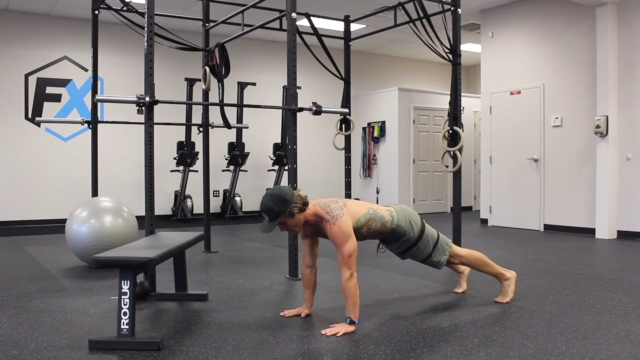
1. Serratus Pushes
Serratus pushes help to strengthen the serratus anterior muscle, responsible for scapula stabilization. This exercise can be done on a stability ball or with push-up bars. Keep your core tight and make sure to push through your shoulders at the top of the movement for maximal engagement.
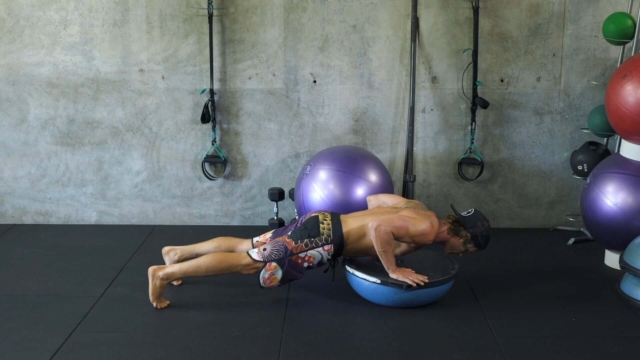
2. Stability Ball Push-ups
Performing push-ups on a stability ball challenges your shoulder stability and core control. Make sure to maintain a strong core throughout the entire movement, slowly lowering your chest towards the ball before pushing back up. Experiment with various hand placements to engage different muscles.
3. Single Arm Stability Ball Dumbbell Chest Press
This exercise combines core strength, pelvic stability, and upper body strength, making it an excellent choice for surfers looking to improve their duck dive technique. Lay on a stability ball with one foot on the ground and the other leg extended. Perform a single-arm dumbbell chest press, maintaining balance and core stability throughout the movement.
4. Front Plank Shifts
Front plank shifts are an excellent way to improve core control and shoulder stability. Begin in a plank position with your forearms resting on the ground, and your body in a straight line from head to toe. Shift your body forward and backward in small movements, engaging your core and maintaining proper alignment.
5. Pool Duck Dive Drills
Practicing duck dives in a pool allows you to focus on technique and body positioning without wave interference. Bring a surfboard, and simulate duck diving in various depths of water. Focus on proper form, including extending your arms, sinking the board, and using your knee or foot to drive the board underwater.
6. Balance Board Exercises
Improving your balance is essential for effectively executing a duck dive. Utilize a balance board to practice various surfing movements, including duck dives, by mimicking the action of sinking and raising the board. This exercise helps develop muscle memory and body awareness needed for successful duck dives in the water.

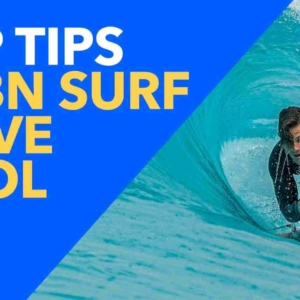
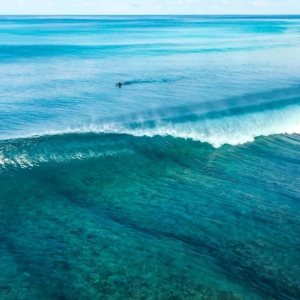
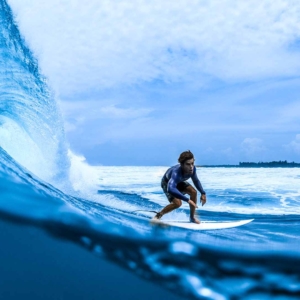
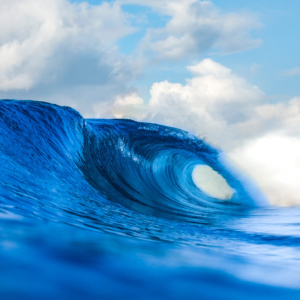
Comment